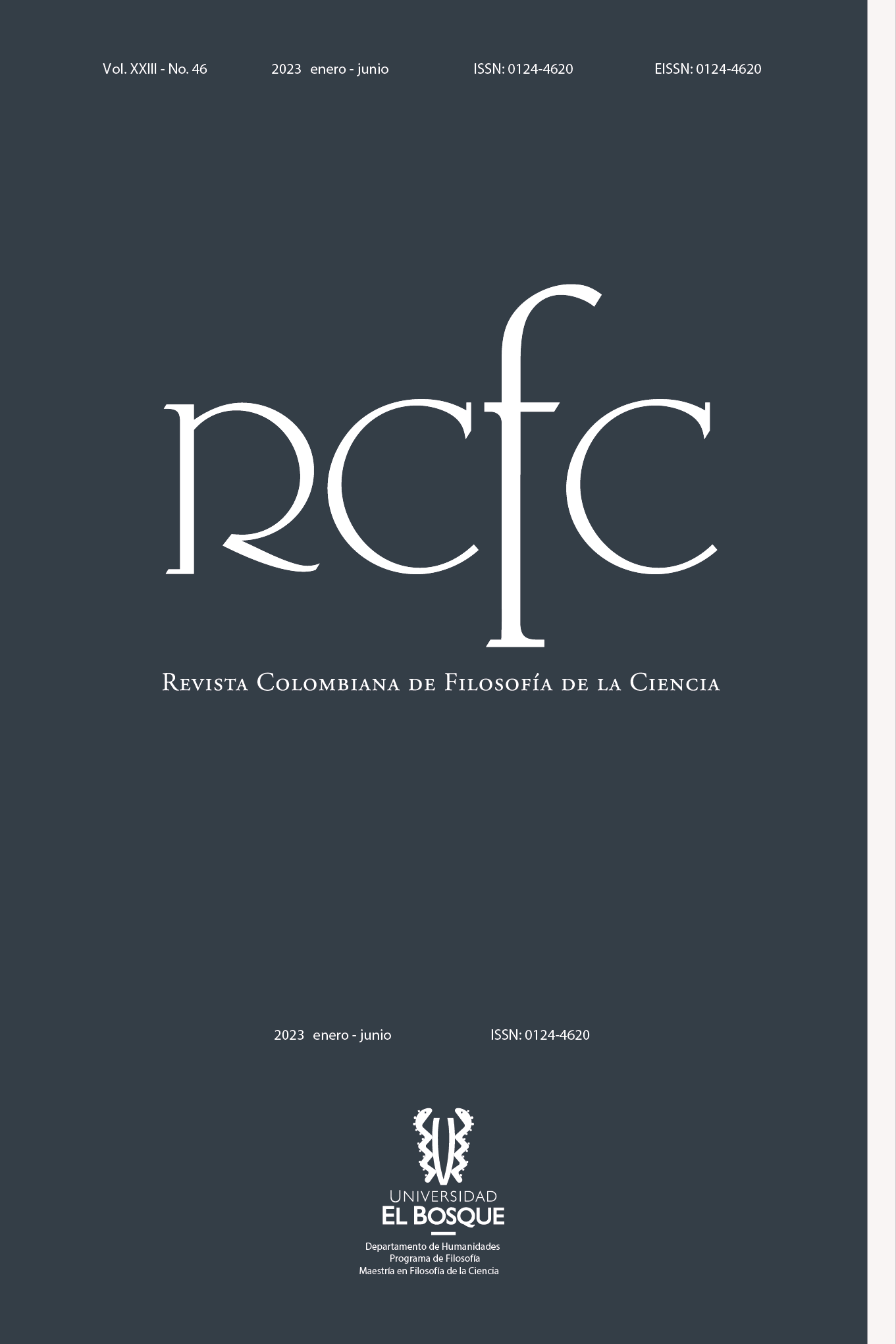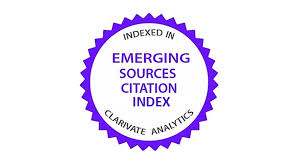Chess Player's Expertise from a Micro-Phenomenology View
DOI:
https://doi.org/10.18270/rcfc.v23i46.3836Keywords:
chess, phenomenology, intuition, expertise, micro-phenomenological interviewAbstract
Different investigations have studied the phenomenon of how chess players reach a high level of expertise. However, the vast majority of these have been carried out from a third-person perspective, that is, without considering the subjective experience of the chess player. The present work aims at 1) analyzing the expertise of proficient-level chess players from a phenomenological perspective, that is, from the subjective experience of the player; 2) pointing out the internal states that seem to be cognitively relevant in the actions of the players; 3) theorizing about the possible role that intuition plays in the actions of the players. For this, an exploratory study was carried out with five chess players during a national court competition in Mexico, using the micro-phenomenological interview method proposed by Claire Petitmengin. The results indicate that there are regularities in the internal states of the players, at the intra- and interpersonal level, implicitly associated with critical moments in the game. The foregoing allows us to offer an operational definition of intuition and affirm that, indeed, it is part of the cognitively relevant processes of proficient chess players, although their actions will still depend, to a large extent, on the explicit calculations they perform during critical moments.
Downloads
References
Aciego, Ramón., García, Lorena y Moisés Betancort. “The Benefits of Chess for the Intellectual and Social-emotional Enrichment in Schoolchildren”. The Spanish journal of psychology 15.2 (2012): 551-559. <https://doi.org/10.5209/rev_SJOP.2012.v15.n2.38866>
Austin, John Langshaw y Urmson J. O. Cómo hacer cosas con palabras. Barcelona: Paidós, 1990.
Astudillo Sandoval, Isidoro. Expertise del ajedrecista desde una perspectiva fenomenológica. Tesis de Maestría en Ciencias Cognitivas: Universidad Autónoma del Estado de Morelos octubre, 2020. 1-57. < http://riaa.uaem.mx/handle/20.500.12055/1308>
Baddeley, Alan David. “Working Memory”. Philosophical Transactions of the Royal Society of London. B, Biological Sciences 302.1110 (1983): 311-324. <https://doi.org/10.1098/rstb.1983.0057>
Bratko, Ivan. “AlphaZero–what’s missing?” Informatica 42.1 (2018): 7-11. <https://www.informatica.si/index.php/informatica/article/view/2226>
Bueno, Lázaro. Ajedrez juego ciencia y con ciencia. La Habana: Sello Editorial Academia, 2015.
Burgoyne, Alexander P., et ál. “The Relationship Between Cognitive Ability and Chess Skill: A Comprehensive Meta-Analysis”. Intelligence 59 (2016): 72-83. <https://doi.org/10.1016/j.intell.2016.08.002>
Connors, Michael H., Burns, Bruce D. y Campitelli, Guillermo. “Expertise in complex Decision Making: the Role of Search in Chess 70 years After de Groot”. Cognitive science 35.8 (2011): 1567-1579. < https://doi.org/10.1111/j.1551-6709.2011.01196.x>
Charness, Niel. “Search in Chess: Age and Skill Differences”. Journal of Experimental Psychology: Human Perception and Performance 7.2 (1981): 467-476. <https://doi.org/10.1037/0096-1523.7.2.467>
Chase, William G., y Herbert A. Simon. “Perception in Chess”. Cognitive Psychology 4.1 (1973): 55-81. <https://doi.org/10.1016/0010-0285(73)90004-2>
De Groot, Adriaan D. Thought and choice in chess. Berlin, Boston: De Gruyter Mouton, 2014. <https://doi.org/10.1515/9783110800647>
Dorfman, Iossif. El método en ajedrez. Editorial Chessy, 2004.
Dreyfus, Hubert., Dreyfus, Stuart E. y Athanasiou, Tom. Mind over machine: The Power of Human Intuition and Expertise in the Era of the Computer. Simon and Schuster, 1986.
Feltovich, Paul J., Prietula, Michael J. y Ericsson, K. Anders. “Studies of Expertise from Psychological Perspectives”. The Cambridge Handbook of Expertise and Expert Performance. Cambridge: Cambridge University Press, 2006. 41-68. <https://www.doi.org/10.1017/CBO9780511816796.004>
Gobet, Fernand. The Psychology of Chess. London: Routledge, 2018. <https://doi.org/10.4324/9781315441887>
Gaprindashvili, Paata. Critical Moments in Chess. London: Batsford, 2013.
Hambrick, David Z., Campitelli, Guillermo y Macnamara, Brooke N. The Science of Expertise. New York, NY: Routledge, 2018.
Holding, Dennis H. “17 Search Process Versus Pattern Structure in Chess Skill”. Advances in psychology. Vol. 93. North-Holland, 1992. 649-676. <https://doi.org/10.1016/S0166-4115(08)61029-8>
Kasparov, Garry. Deep Thinking: Where Machine Intelligence Ends and Human Creativity Begins. Londres: Hachette UK, 2017.
Lappi Otto y Dove Alan. The Science of the Racer´s Brain. Editorial: Otto Lappi, 2022.
Montero, Barbara., y Evans, C. D. A. “Intuitions without Concepts Lose the Game: Mindedness in the Art of Chess”. Phenomenology and the Cognitive Sciences 10.2 (2011): 175-194. <https://www.doi.org/10.1007/s11097-010-9192-9>
National Research Council (US). Committee on Support for Thinking Spatially, et ál. Learning to think spatially: GIS as a support system in the K-12 curriculum. National Academy Press, 2006. <https://doi.org/10.17226%2F11019>
Petitmengin, Claire. “Describing one’s Subjective Experience in the Second Person: An Interview Method for the Science of Consciousness”. Phenomenology and the Cognitive sciences 5.3 (2006): 229-269. <https://doi.org/10.1007/s11097-006-9022-2>
Petitmengin, Claire., Remillieux, Anne., y Valenzuela-Moguillansky, Camila. “Discovering the Structures of Lived Experience”. Phenomenology and the Cognitive Sciences 18.4 (2018): 691-730. <https://doi.org/10.1007/s11097-018-9597-4>
Pinker, Steven., y Kosslyn, Stephen M. “The Representation and Manipulation of Three-dimensional Space in Mental Images”. Journal of Mental Imagery 2.1 (1978): 69-84.
Pittalis, Marios., y Christou, Constantinos. “Types of Reasoning in 3D Geometry Thinking and Their Relation with Spatial Ability”. Educational Studies in mathematics 75.2 (2010): 191-212. <https://doi.org/10.1007/s10649-010-9251-8>
Robbins, T. W., et ál. “Working Memory in Chess”. Memory & Cognition 24.1 (1996): 83-93. <https://doi.org/10.3758/BF03197274>
Sadler, Matthew., y Regan, Natasha. Game Changer: AlphaZero’s Groundbreaking Chess Strategies and the Promise of AI. Alkmaar. The Netherlands: New in Chess, 2019.
Schear, K, Joseph. “Mind, Reason, and Being-in-the-World The McDowell-Dreyfus Debate”. London: Routledge, 2013. <https://doi.org/10.4324/9780203076316>
Trinchero, Roberto. “Can Chess Training Improve Pisa Scores in Mathematics? An Experiment in Italian Primary Schools”. Kasparov Chess Foundation Europe (2013): 1-18
Vermersch, Pierre. “La entrevista de explicitación”. Independently published, 2019.
Zeynalli, Aytan. Educational Impacts of Chess Instruction in Azerbaijan. Diss. ADA University, 2015. <http://dx.doi.org/10.13140/RG.2.1.1002.3128>

Downloads
Published
How to Cite
Issue
Section
License

This work is licensed under a Creative Commons Attribution-NonCommercial-NoDerivatives 4.0 International License.

| Article metrics | |
|---|---|
| Abstract views | |
| Galley vies | |
| PDF Views | |
| HTML views | |
| Other views | |










